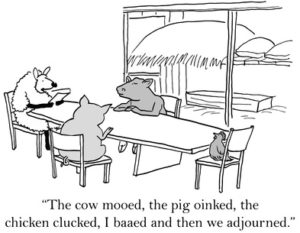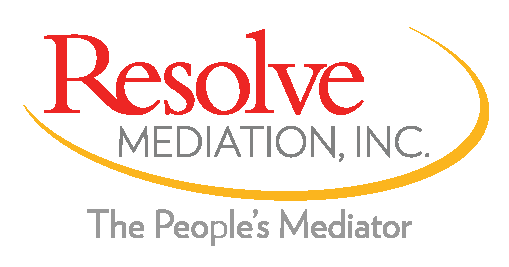
Have you heard of Robert’s Rules (of Order) or parliamentary procedure when discussing your community association general meeting or a meeting of the Board? Some states do require meetings be guided by Robert’s Rules, while others do not. Your community association may not need the guidance of Robert’s Rules during meetings, but for others, they may be a blessing.
What is Parliamentary Procedure?
Parliamentary procedure simply stated are the rules of order. Scholarly sources define parliamentary procedure as those practices commonly used in governance during assemblies.[i] These rules are in place to maintain conduct, decorum, organization of the process and expedite the purpose of a meeting, the agenda. Some writings suggest the use of parliamentary procedure as early as during the rise of the Roman Empire, when leaders and Senators would gather to discuss and debate affairs of state. Other sources explain the origin of parliamentary procedure beginning with the British Parliament, as early as 1560 AD. Following a motion, when you hear your association President call for “All in favor?” the President is using parliamentary procedure. The Colonists and Framers looked to the familiar procedures they knew, which subsequently guided the writing of The Constitution of the United States.[ii]
Robert’s Rules of Order
In 1876 Army Officer Henry Martyn Robert published the first edition of Robert’s Rules of Order in response to his own limitations to successfully manage a meeting. Since that time the rules have been revised and updated and presently Robert’s Rules of Order is available in its eleventh edition. Robert’s Rules offer guidelines on how to conduct controlled, successful meetings for both large and smaller groups; defines and assists in understanding the variety of motions that are made throughout meetings; proper voting techniques; taking minutes; use of language; and the roles of Officers, among other elements that are utilized when conducting a meeting.
Some community associations always use Robert’s Rules when conducting both general and Board meetings; sometimes this is by statutory requirement and sometimes modified in part. For example, in 2011 the Connecticut Uniform Common Interest Act required meetings of the association to be conducted in concert with the “most recent edition of Robert’s Rules”… “Except as otherwise provided in the bylaws.…”[iii]
In the State of Florida Robert’s Rules are not required by statute when conducting community association meetings. The statutes applicable to homeowners’ associations (Chapter 720 of the Florida Statutes), co-ops (Chapter 719 of the Florida Statutes) and condominiums (Chapter 718 of the Florida Statutes) dictate specific requirements unique to each. Robert’s Rules assist in maintaining a semblance of order and may be required per the association bylaws. Some may use the rules due to familiarity, as a support system, or a modified version thereof.
What Works Best for Your Association
So, what works best for your community association? Typically associations follow parliamentary procedure in meetings, but not all invoke Robert’s Rules. My HOA is a small community and I’m happy to share that we all get along nicely. Of course there is that one (or two) member(s) who likes to stir things up but overall the association runs smoothly. Our Annual Meeting is held outside, in a cozy gazebo overlooking the waterway, lending itself to a nice welcoming meeting environment. Point being, do to our small, manageable size and level of ease, we follow parliamentary procedure but we do not apply Robert’s Rules in our meetings.
What experience, if any, related to Robert’s Rules and parliamentary procedure have you had in your community association meetings? I am interested in hearing from you, so please share and comment so others may learn from your experience.
[i] “Parliamentary Procedure”. Encyclopedia Britannica. N.p., 2017 Fri. 9 June 2017.
[ii] Massey, M. (2017, February). Essentials of Parliamentary Procedure. Retrieved from http://www.cviog.uga.edu/_resources/documents/training-and-education/clerks-conference-documents/meeting-management-102-open-meetings.pdf
[iii] Slaughter, J. H., Esq., & Slaughter, R. B., PA. (2015). Running a Darn Good Meeting: What You Need to Know About Parliamentary Procedure . Manuscript submitted for publication, Community Associations Institute.


